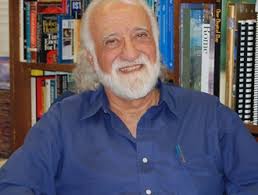Objectives
To see the presentation please click here
Abstract: From my humble perspective I see the list of people purporting to do serious research in machine learning and quantum computing growing exponentially. I am reminded of all the misguided verbiage on parallelism when companies like Intel first put more than one core on a single die. Far be it for me to tell anyone what they should work on, but I wonder if it is not time to return to some fundamental problems with current computer processing that need attention. I always liked the UPC insight of virtually allocating reorder buffer entries at rename time, but not physically allocating them until you had a result that needed to be latched, thereby saving energy. Or, the better time stamp tool achieved by getting into the bowels of the operating system and removing unnecessary layers of overhead. I have been advocating breaking through the layers of transformation; a group at MIT has coined the phrase "plenty of room at the top." Should we revisit the 40 year old 4K page size? Can we do anything about memory bank conflicts. In this talk I will address two things: the growing preoccupation with faddish topics, and some of the problems I think need far more attention.
 Short bio: Yale Patt is a teacher at The University of Texas at Austin, where he enjoys teaching (1) his "motivated bottom-up approach" to computer understanding to freshmen, (2) the senior course in computer architecture, and (3) his advanced graduate course in microarchitecture. He also enjoys working with his bright PhD students on improving computer performance while being mindful of the energy costs involved, and consulting for companies designing high performance microprocessors. He particularly enjoys spending a month each year at UPC/BSC interacting with some of the brightest minds in computer architecture. He has earned obligatory degrees from reputable universities and received more than enough awards for his research and teaching. Further details are available on his website: http://www.ece.utexas.edu/~patt.
Short bio: Yale Patt is a teacher at The University of Texas at Austin, where he enjoys teaching (1) his "motivated bottom-up approach" to computer understanding to freshmen, (2) the senior course in computer architecture, and (3) his advanced graduate course in microarchitecture. He also enjoys working with his bright PhD students on improving computer performance while being mindful of the energy costs involved, and consulting for companies designing high performance microprocessors. He particularly enjoys spending a month each year at UPC/BSC interacting with some of the brightest minds in computer architecture. He has earned obligatory degrees from reputable universities and received more than enough awards for his research and teaching. Further details are available on his website: http://www.ece.utexas.edu/~patt.

